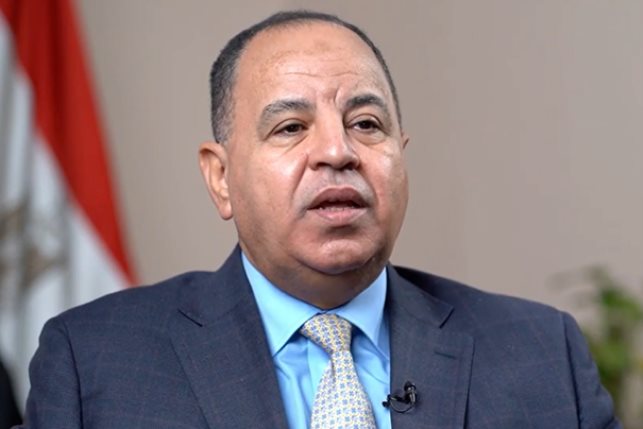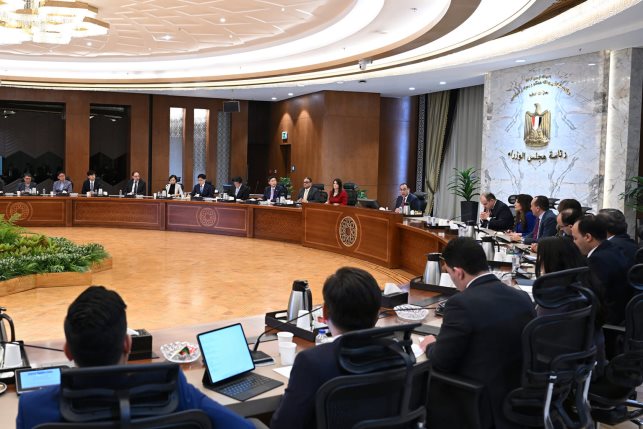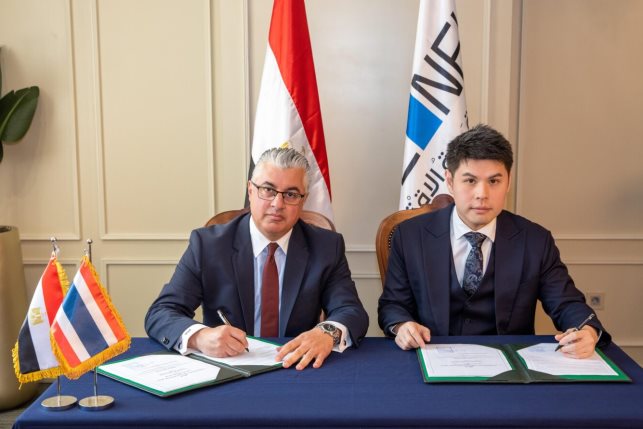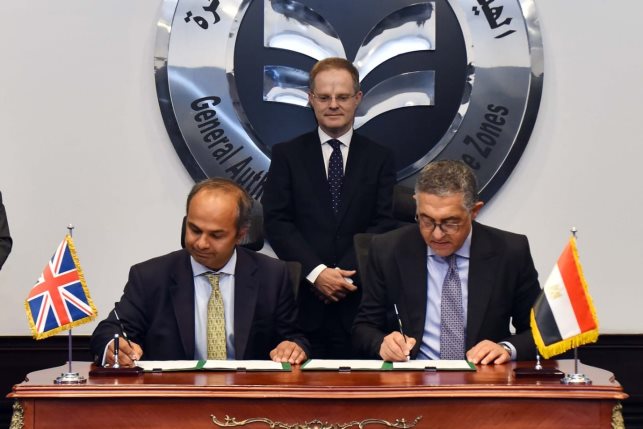Egypt's national logistics center to revolutionize trade, logistics operations
Egypt takes decisive action to revitalize domestic trade. Ministers lay foundation for logistics/commercial areas in Kafr El-Sheikh, promoting growth and development.
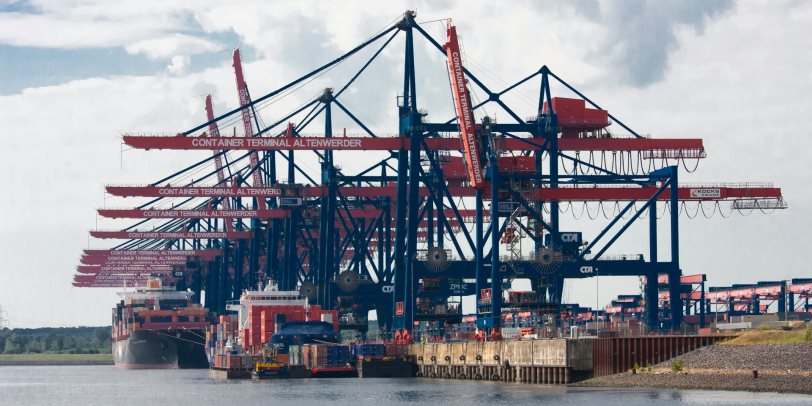
Under the guidance of the political leadership, a concerted effort is underway to revamp and optimize Egypt's domestic trade system.
Taking decisive action, Dr. Ali El-Meselhi, Minister of Supply and Internal Trade, joined forces with Major General Hesham Ameen, Minister of Local Development; Ambassador Soha Gendy, Minister of State for Migration and Egyptian Expatriate Affairs; Major General Gamal Nour El-Din, Governor of Kafr El-Sheikh; Dr. Tarek Rahmi, Governor of Gharbia; and Dr. Ibrahim Eshmaawi, Assistant Minister of Supply and Head of the Internal Trade Development Authority.
Together, this esteemed group laid the foundation stone for two expansive "logistics/commercial" areas spanning 22 acres in Kafr El-Sheikh Governorate. These cutting-edge facilities will accommodate diverse operations such as wholesale trade, packaging and labeling, cold and freezing storage capabilities, as well as recreational, social, educational, administrative, and other essential activities.
These developments align closely with the political leadership's directives, prioritizing the development and enhancement of Egypt's domestic trade system.
Commercial, administrative, and logistics activities:
Minister El-Meselhi stated that the logistics zones in Kafr El-Sheikh Governorate will involve the establishment of a project with commercial, administrative, and logistics activities, with investments ranging from 5 to 6 billion Egyptian pounds.
He also noted that numerous investment opportunities have been previously presented in several governorates over the years, aligning with the directives of the political leadership to create logistics, commercial, recreational, and service areas aimed at providing essential goods and other products.
These logistics areas and multi-activity commercial centers, including strategic storage facilities, will help reduce the trading cycle, minimize waste and loss in the distribution of products, particularly considering that transportation costs account for nearly 10 to 15% of the final product price.
The construction of such logistics and commercial zones, along with distribution and sales outlets, will lower transportation expenses, thereby benefiting consumers with reduced final prices.
The minister emphasized that priority in job opportunities for these projects will be given to the residents of Kafr El-Sheikh Governorate.
He affirmed that the cooperation between the Ministry of Supply and Kafr El-Sheikh Governorate, in addition to the developer, will add significant value to the expansion of establishing logistics and commercial areas within the governorate.
Strategic plan to boost domestic trade:
He also mentioned that a strategic plan for the development of domestic trade across the country has been prepared, following the directives of His Excellency President Abdel Fattah El-Sisi, with ongoing implementation of numerous similar areas in various governorates.
Minister El-Meselhi underlined the ministry's commitment to overcoming any obstacles facing investors in implementing logistics projects and expanding major commercial activities.
He highlighted that new investment opportunities are being presented with complete facilities at the project site, along with assistance in obtaining licenses, to enable investors to carry out their agreed-upon projects smoothly and without any hindrances. Dr. Ibrahim Eshmaawi, the Assistant Minister of Supply and the Head of the Internal Trade Development Authority, explained that the establishment of logistics, commercial, recreational, social, administrative, educational, and service areas in Kafr El-Sheikh Governorate will create approximately 20,000 direct and indirect job opportunities.
These areas will encompass diverse business activities, along with service and administrative offices, storage yards, hypermarkets, and shopping centers. The project is scheduled to be inaugurated within 36 months from now.
Furthermore, Eshmaawi stated that the Internal Trade Development Authority has developed an ambitious investment map for various logistics and commercial activities, aiming to fulfill all commercial, marketing, and service requirements for each governorate. This plan is based on thorough studies and assessments of market demands and consumer needs in each governorate. It aims to ensure the efficient distribution of goods, reduce transportation costs, and provide convenient access to essential products and services for residents.
Conducive environment for business activities:
The logistics and commercial zones in Kafr El-Sheikh Governorate are part of this comprehensive strategy to boost domestic trade in Egypt. By establishing these areas, the government aims to create a conducive environment for business activities, attract investments, and generate employment opportunities for the local population.
The project will include various facilities and amenities to support trade operations, such as wholesale trade centers, packaging and labeling services, cold and freezing storage facilities, and administrative offices. Additionally, there will be recreational, social, and educational spaces to enhance the overall quality of life in the area.
Minister El-Meselhi highlighted that the development of these logistics and commercial zones will contribute to reducing the trading cycle, minimizing product waste and loss during distribution, and ultimately leading to lower prices for consumers. Transportation costs, which can significantly impact the final product price, will be reduced by establishing storage and distribution facilities within close proximity to the market.
The government is committed to supporting investors and ensuring a smooth implementation process for these projects. They will provide complete facilities at the project sites, assist with obtaining licenses, and address any obstacles that may arise. The aim is to create an attractive investment environment and facilitate the expansion of major commercial activities across the country.
Overall, the establishment of logistics and commercial zones in Kafr El-Sheikh Governorate is part of Egypt's broader efforts to enhance domestic trade, improve supply chain efficiency, and stimulate economic growth. These initiatives will not only benefit businesses and investors but also contribute to the well-being and prosperity of the local communities.
Boosting domestic trade:
In addition to the establishment of logistics and commercial zones in Kafr El-Sheikh Governorate, the Egyptian government has been implementing several initiatives to boost domestic trade and create a favorable business environment.
1. National Logistics Center: The government has been working on establishing a National Logistics Center, which will serve as a central hub for coordinating and optimizing the movement of goods across the country. This center will integrate various transportation modes, including road, rail, and maritime, to streamline logistics operations and reduce costs.
2. E-Commerce Development: Recognizing the growing importance of e-commerce, Egypt has been taking steps to develop its digital infrastructure and promote online trade. Efforts have been made to enhance payment systems, improve internet connectivity, and facilitate cross-border e-commerce transactions. These measures aim to enable businesses to reach a broader customer base and increase trade efficiency.
3. Investment Incentives: The Egyptian government has implemented various investment incentives to attract both domestic and foreign investors. These incentives include tax breaks, customs exemptions, streamlined licensing processes, and financial support for infrastructure development. By creating a business-friendly environment, the government aims to encourage investment in key sectors and stimulate economic growth.
4. Trade Facilitation and Simplification: Egypt has been actively working on simplifying trade procedures and reducing bureaucracy to facilitate smoother trade flows. Initiatives such as implementing a single-window system for trade documentation and enhancing customs procedures have been undertaken to expedite the clearance of goods and reduce trade barriers.
5. Infrastructure Development: To support domestic trade and logistics, Egypt has been investing in infrastructure development projects. This includes the expansion and modernization of ports, the improvement of road and rail networks, and the development of industrial zones. These infrastructure upgrades aim to enhance connectivity, reduce transportation costs, and enable efficient movement of goods throughout the country.
6. Sector-specific Initiatives: The government has also been focusing on sector-specific initiatives to promote trade and investment in key industries. For example, in agriculture, efforts have been made to enhance food processing and improve export capabilities. In manufacturing, industrial clusters have been established to attract investment and promote local production. These targeted initiatives aim to capitalize on Egypt's strengths in different sectors and drive economic growth.
By implementing these measures, Egypt aims to enhance its domestic trade capabilities, improve supply chain efficiency, and attract investment in key sectors. These initiatives not only contribute to economic growth but also create employment opportunities, enhance competitiveness, and improve the overall well-being of the population.


